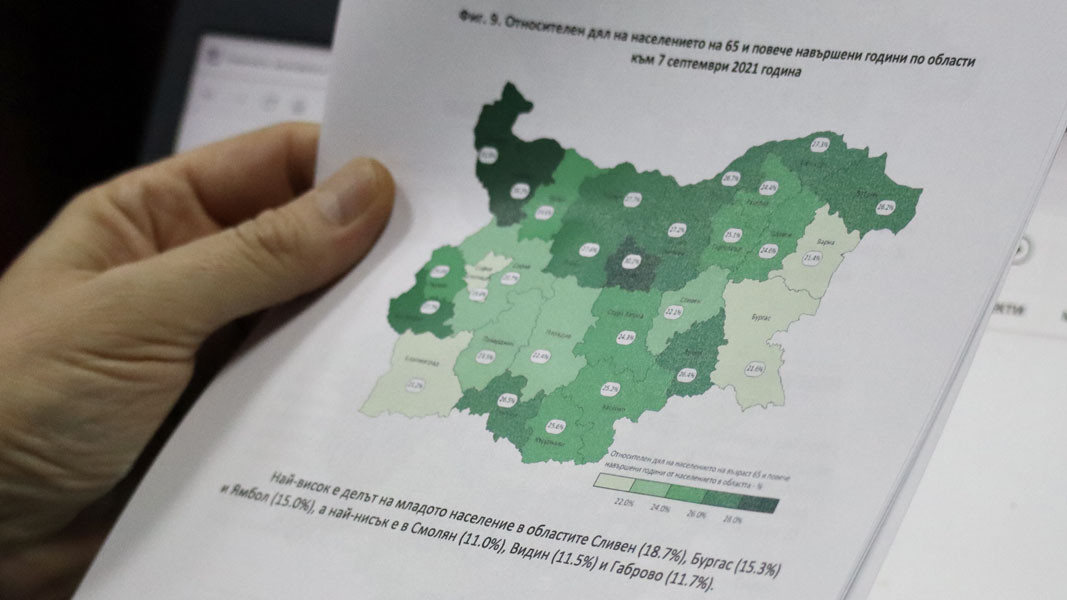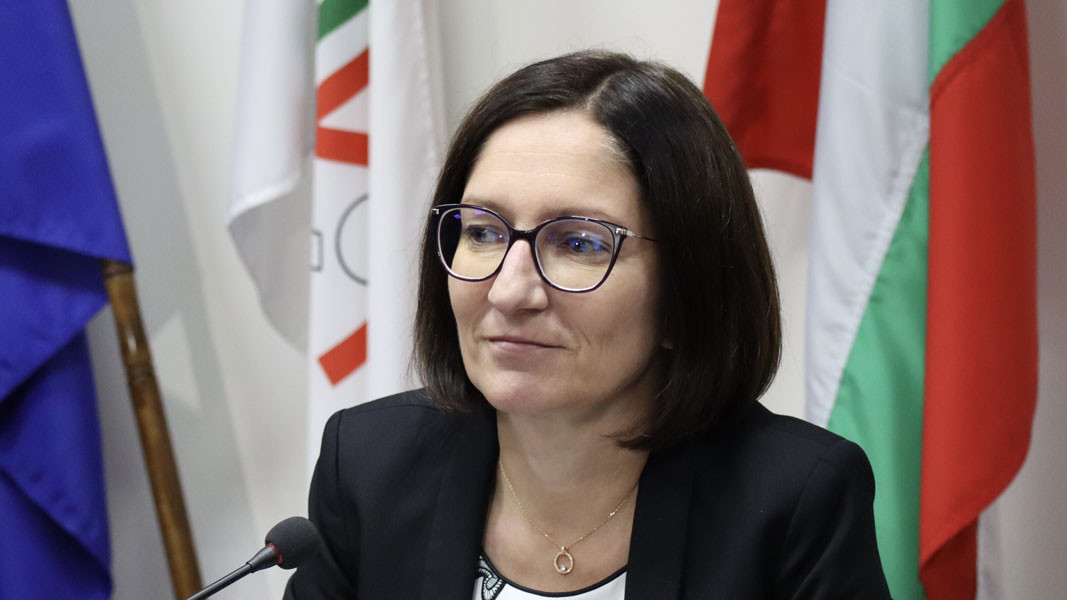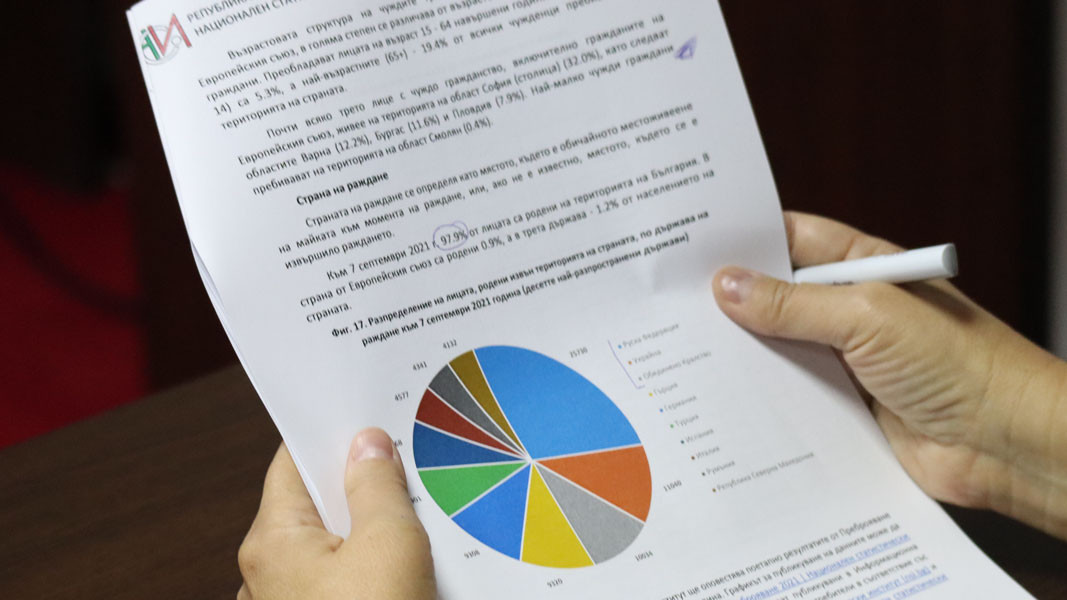The results of the national population census conducted in September last year, which were officially presented yesterday (October 3), confirmed the alarming demographic trend that analysts have been warning about for years. The population of Bulgaria has declined by more than 844,000 people for a decade to 6.519 million, as there are a little more than 3.383 million women and 3.136 million men.
Bulgaria’s population has been shrinking by 55-60,000 people per year averagely, but the recorded decline for the ten-year period is even greater than previously expected, Prof. Georgi Bardarov, lecturer at the Faculty of Geology and Geography of Sofia University "St. Kliment Ohridski" says. The main factor for the demographic situation in Bulgaria is not the birth rate, but the death rate, as this was valid even before the pandemic, he also pointed out.
During the entire period, this country recorded negative growth, with the peak being in 2021 with minus 90,317 people. 344,000 Bulgarians have left the country during this period. The data show that the two factors have an almost equal role in the negative demographic trend – 59.3% as the result of negative growth and 40.7% as a result of external migration.

Another trend that stands out in the statistical data is the aging of the population with nearly a million fewer people of working age for the period:
"In the 15-64 age group, the population is 4 million and 69 thousand as it has declined by 955,000 people for 10 years," Magdalena Kostova, head of the Demographic and Social Statistics Directorate at NSI said. Currently, there are 60 persons in the non-independent age range (from 0-15 and over 65 years of age) per 100 independent adults (the 15-64 age group). There are 917,000 children. In comparison, during the census of 1900, over 40% of the population were children under 14 and in 2021 we have reached the point where children in our country are just 14% of the population."

The National Statistical Institute points out that information about the population on the territory of Bulgaria is important, so that the national policy can be updated. According to the needs of the population, schools, hospitals, kindergartens will be opened or closed in the future.
Are there demographic deserts in this country?
As of September 7, 2021, 4,700 million people live in the cities of Bulgaria, and 1,738 million remain in the villages. There are 199 settlements that exist on the map of the country, but are in fact depopulated. They are located in the regions of Gabrovo, Veliko Tarnovo, Kyustendil, Kardzhali, Smolyan, etc., Magdalena Kostova says and adds:
"The population of Sofia-city region has declined the least – by just 1.3%, as there are 1.274 million people here. Plovdiv, Varna and Burgas follow. 41% of the population live in the four regions."

99.1% of the country's population are Bulgarian citizens, the National Statistics also reports. 0.5% have dual citizenship and there are 10,549 foreign EU citizens (0.2% of the population). Citizens of non-EU countries are 0.7%, as most of them are from the Russian Federation, Ukraine, the United Kingdom, Turkey, Syria, China, etc. 30% of foreign citizens live in Sofia, as people of active age predominate.
English: Al. Markov
Photos: BGNESThe Bulgarian Sunday School "Asen and Ilia Peykovi" in Rome is inviting participants to an online seminar themed "Biserche Valshebno". The event, taking place on March 22 and 23, is a continuation of the discussions that emerged during the Second..
"It all started on a March evening in 2007 when 2 million people and 2,000 companies in Sydney (Australia) turned off their lights for one hour – from 8:30 PM to 9:30 PM – to show that they care about nature and the climate. Back then, no one could..
Concert in North Macedonia turns into tragedy A nightclub fire tragedy left North Macedonia in grief. A concert by the popular hip-hop group DNA, which was supposed to become a celebration in the small town of Kočani, turned into a true..
An international conference “AI and education: The road to innovative teaching and learning” brings together 50 teachers from the Bulgarian schools..
Divers will clean the seabed around the port of Sozopol today, reports BTA. "Since 2018, we have been doing the cleaning, completely voluntarily, with..
In 2024, Bulgaria has 15,737 foreign students, making up 8.6% of all current students in the country. By comparison, this share has doubled over the..

+359 2 9336 661
